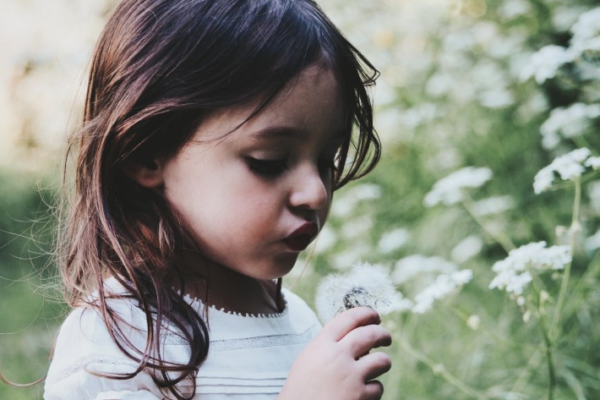Unmasking Big Emotions in Little (and Grown-up) People

This article is by my co-blogger Julie, with whom I have at least five things (humans, actually) in common.
While the global pandemic isn’t officially over yet, most of us (and our kids) have had to launch out of lockdown and hit the ground running again – this time, with masks on. While these masks might help contain the spread of the virus, they’re also a stark reminder of how much has changed in a relatively short period of time.
It’s not just our faces that are hidden from one another, but our weary hearts and emotions. All of us have been through a crazy time – our kids too.
I was freshly reminded of this a few nights ago when my little tween had a not-so-little meltdown. I tried to remember all my Brené Brown reading and listen, really listen. This is what I heard:
“Mom, I’m trying really hard, but life feels overwhelming. I just never feel like I’m on top of things… If this is Grade 5 – I don’t know how I’m going to do another 7 years of school! It feels like we’re having to catch up all the time. It’s just not fun anymore. And you know mom, I might act fine, but I’m actually really sensitive inside. Sometimes my friends say small things that cut deep. It makes me wonder if any of them really care about me… I’ve got lots of friends, but sometimes I feel really lonely still.
And mom, you know how sometimes my room gets messy and I need to spend a day sorting it out? Well it feels like that in my head… like there are all these crumpled up papers and messy toys everywhere. There are so many things I’m worried about – and things I wanted to start and then finished – and they’re not going away, they’re just piling up. Do you know how to help me clear out the clutter in my mind?”
Now, I know that not all kids are this articulate, but this particular kid was a Boss Baby from the minute he swaggered out of the womb, dressed in a suit and tie, holding a cigar in his chubby little hand. He really, really said all of the above.
And I’m guessing he speaks for a lot of kids at the moment (even if they don’t say it)… just like us, our kids are trying really hard, and life can feel really overwhelming at times.
I did some more reading and chatted to a school counselor to find out how best to help my little guy deal with his big emotions. It turns out, the steps he should take are the same for all of us – no matter our age or stage. So here are three things I’m going to try to practice and preach to my kids over the next while:
You Can Do Hard Things
None of us wants to see our child unhappy, but the best way to help kids overcome anxiety isn’t to try to remove the stressors that trigger it. It’s to help them learn to recognise and regulate their feelings, even when they’re not nice feelings. Helping children avoid the things they are afraid of might make them feel better in the short term, but it reinforces their fears over the long run. Remember, our job is to prepare our kids for the road, not the road for our kids.
Your Feelings Are Valid
Emotions are one-size-fits-all… feelings like worry, sadness and happiness don’t come in kiddie and adult sizes. A 10-year-old can feel just as overwhelmed or sad or angry as a 30-year-old. So let’s not minimise our kid’s problems based on their youth or the relative size of their problem compared to our own.
Listen to your kids when they talk about how they feel, and validate those feelings by not being too quick to tell them not to worry or solve their problems for them… Rather, reflect what they have said back to them, and ask more questions (empowering them to think for themselves how to solve their problems). For example, you might want to say, “I can hear that you’re really feeling overwhelmed/anxious/sad/angry… those are heavy feelings to carry… is there anything you can think to do that might make you feel a little less overwhelmed/anxious/sad/angry?”
At the same time, it’s important to understand that validation doesn’t always mean agreement. If a child is terrified about going to the doctor, it’s right to not belittle their fears, but you also don’t want to amplify them. Listen to their concerns, then encourage them to feel that they can face their fears. The message you want to send is, “I know you’re scared, and that’s okay. I’m here, and I’m going to help you get through this.”
Write Your Worries Away
To help to declutter his mind, I’m going to encourage my boy to journal more. This might not work for everyone, but I’ve found the practice of regular journaling to be a joyful, transformative process. For a child, keeping a journal is similar to confiding in an imaginary friend. It creates a private outlet for their fears and anxieties, and can help shrink the problem by allowing the writer to better articulate their innermost feelings, thoughts and goals.
When it comes to journaling, there are three different kinds I like to use:
1. A to-do list journal… this kind of writing relates to productivity. Write down all the big and little things you need to do, and tick them off as you go. If you remember something you need to do in the future before going to bed, write it down so that your mind doesn’t have to hold it for you while you sleep.
2. A diary journal… this kind of writing relates to posterity. It’s where you can reflect on any given day or week or month and write down what you want to remember from it. It’s the ideal place to express some of your fears, reflections and hopes.
3. A morning journal… this kind of writing relates to creativity. The author and artist Julia Cameron writes about this kind of journaling as ‘Morning Pages’ – a habit best done first thing every morning on a daily basis. The idea is to wake up, open your morning journal, and write a couple pages of any thoughts that come out of your head. Some days—it might look like a to-do list, over days—like a memory, or poem. Whatever comes out, it’s what happens inside that counts: a clearer mind, processed emotions, and a sharper level of creativity too.
I’m going to take a little bit of time out to teach my boy a little more about journaling, all the while, reminding us both that we can do hard things, and that every feeling we may have along the way is valid.
Perhaps you want to do the same?
P.S. from Terran: What Julie doesn’t say is that my boy has enthusiastically taken her final advice about journaling—and has even got his sister to start doing the same. Both of them are now regular journal-ers and think it’s the best thing since chocolate-smeared sliced bread.
Comments
Also published on Medium.




